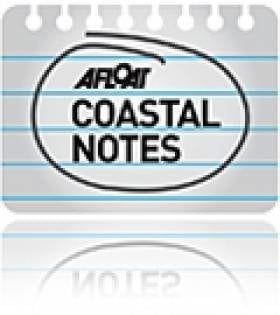Displaying items by tag: Blackrock Baths
Galway's Blackrock "Men Only" Bathing Ban Recalled in Culture Night Documentary
It is 50 years ago since a “Men Only” sign was removed from the entrance to Galway’s Blackrock swimming area.
Before this, bathing was officially segregated in Salthill on Galway Bay, at the request of Catholic bishops who believed mixed bathing could be occasions of sin.
From the 1930s, when swimming became popular, women were directed to Ladies beach, while families were accommodated close by.
By the end of the 1960s, however, attitudes had changed and rules were not so rigidly observed.
A 15-minute documentary by Mary Cunningham which is available online for this year’s Culture Night interviews people who swam at Salthill in the 1960s, and remember the influence of the Catholic church on social behaviour.
Jane Hogan and Maude O’Donohoe recall one young woman's rebellion against the rules sometime in the mid 1960s, when she swam up to the male section at Blackrock and left her bikini top on a flagpole.
Year round swimmer P.J. Flaherty recalls the camaraderie that existed among the men who frequented the area, and the resentment of some at the arrival of women.
In 1971, a local councillor requested that Galway Corporation ban so-called “Bikini Girls”' from the “male enclave”, as they disturbed the older men and priests who swam there.
However, by then attitudes had changed and the “Men Only” sign was quietly removed in early September, 50 years ago.
Listen to The Bracing Waters and Moral Dangers of Salthill HERE
Save Our Seafront Host Public Meeting in Dun Laoghaire Tonight
#DUN LAOGHAIRE NEWS - Save Our Seafront will hold a public meeting this evening Thursday 4 October at The Kingston Hotel in Dun Laoghaire to discuss a number of issues such as the redevelopment of the harbour baths, the demolition of Blackrock Baths and repairs at Coliemore Harbour.
The South Dublin campaign group - featuring People Before Profit Alliance TD Richard Boyd Barrett and Dun Laoghaire-Rathdown Councillor Melisa Halpin - has circulated a newsletter outlining its position on these concerns.
Among its claims is that Dun Laoghaire-Rathdown County Council (DLRCC) wants to abandon its previous commitments to provide a public swimming pool on the site of the historic Victorian sea baths, opting instead for a €1.5 million 'Badeschiff' or floating pool in the harbour with no permanent construction.
The group also describes as a "disgrace" the abandonment of the Blackrock Baths site, which faces imminent demolition due to public health and safety concerns, and takes issue with DLRCC councillors' apparent declaration that Coliemore Harbour in Dalkey - the main departure point for boat trips to Dalkey Island - is unsafe for passenger boats.
The public meeting under the title 'What Is Happening To Our Seafront?' takes place tonight at 8pm in The Kingston Hotel on Haddington Terrace.
Blackrock Baths to Face Demolition
#COASTAL NOTES - The famed Blackrock Baths are to be demolished after county councillors deemed the now-derelict facility as "dangerous", The Irish Times reports.
Dating from 1839, the seafront baths were once Ireland's top venue for watersports, featuring a 50-metre pool and a diving platform that is still a feature of the south Dublin coastal vista.
However since the baths closed in the 1980s the site fell into disrepair. In 1997 the freehold for the site was purchased by Treasury Holdings Ltd, one of the companies most severely affected by the collapse of the property market.
In a statement, Dun Laoghaire-Rathdown County Council said that the baths had suffered from extensive weathering and erosion "making the structures and adjoining land dangerous for members of the public". The diving platform was also found to have corroded and detached from its base.
A council inspection saw the bath facilities declared as "dangerous structures", and demolition work on those elements is set to commence shortly.
The Irish Times has more on the story HERE.































































